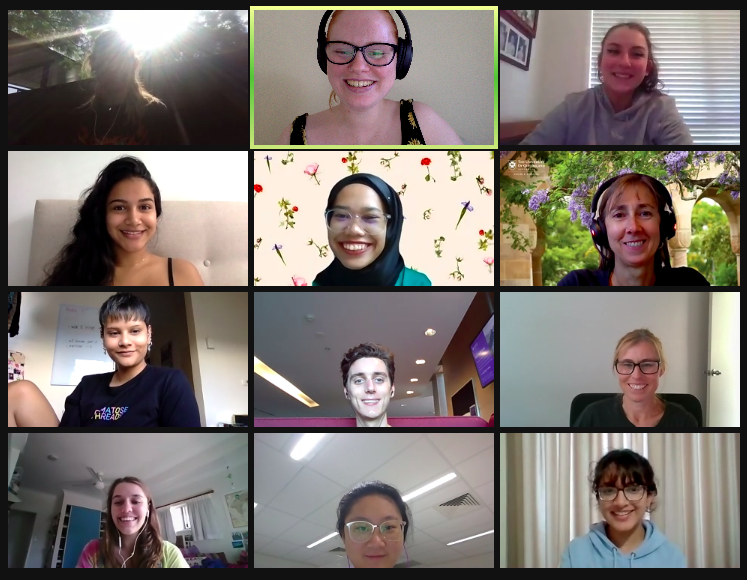2021 - The Green Ambassador Program wins Highly Commended Green Gowns Award
This year saw the Green Ambassador Program (GAP) recognised internationally, winning a Highly Commended Green Gowns Awards for Australasia!
This exciting announcement comes as the program is just reaching its two year mark. To celebrate GAP, a short video was created, which highlighted what GAP has achieved in the past and hopes to achieve into the future in terms of engaging students, and facilitating them to carry out sustainability initiatives of their own, on and off campus.
Student engagement has always been the main aim of the Green Ambassador Program, so it is encouraging for the program to have this recognised internationally.

GAP has provided students an opportunity to have input into decisions made within the Sustainability Office, as well as being given insights into what the Sustainability Office is working on behind the scenes.
Examples of this included aiding in assessing Green Fund applications, assisting in evaluating the draft Sustainability Strategy, and will include assessing STARS submissions and applications for the Sustainability Award. Students are also given a large amount of freedom and flexibility in creating their own sustainability initiatives on campus. One of these initiatives was the Sustainability Award, which was created just this year by a student in the Student Resources Manager position.

The Green Gowns category of ‘Student Engagement’ incorporates the values of utilising staff and students to follow both a top-down, as well as bottom-up approach towards sustainability across an institution.
Whilst doing so, students are able to gain opportunities in developing valuable skills for the work force, in addition to contributing towards sustainability in a real and measurable way.
The Green Ambassador Program first found its footing in the midst of the COVID-19 pandemic, and was able to create a positive online space for students and staff to come together to further existing initiatives, and develop new initiatives, to enhance sustainability at UQ.
Allowing students to engage with one another and staff, in a space that is not related to assessments, and be supported by the sustainability office in their efforts, ensured that students felt heard and comfortable.
It has also allowed students from different degrees, who may not have had a chance to collaborate otherwise, to meet and to learn from one another.
Many students involved in the Sustainability Council are studying degrees relating to the environment, for example Environmental Management or Science, while other students are studying in other fields such as International Relations and Public Health.
